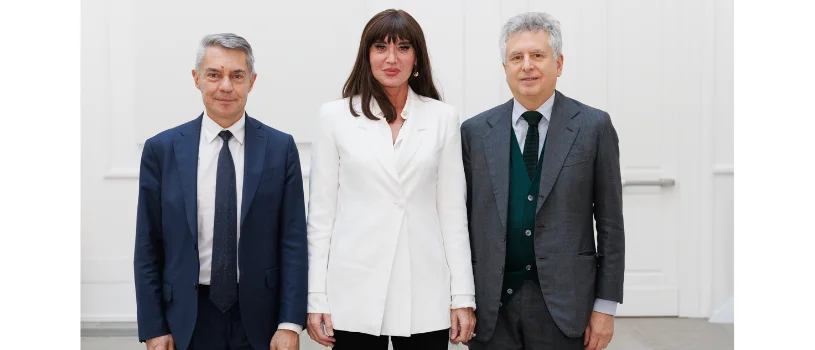The workshop organised by the Philea Research Forum showcased the strategic role played by philanthropy in advancing research, innovation and competitiveness across Europe. It underscored how an international, impact-driven approach can deliver tangible benefits for the region, foster sustainable development and help reduce inequalities.
On 6 and 7 November 2025, Fondazione Compagnia di San Paolo hosted “Revitalising Europe’s Economic Dynamism: The Role of Philanthropy in Research and Innovation” at the Collegio Carlo Alberto in Turin. This international event was organised by the Research Forum, the Philea – Philanthropy Europe Association platform that brings together some of Europe’s leading research-funding foundations. The occasion marked the start of Fondazione Compagnia di San Paolo’s three-year chairmanship of the Forum.
Over two days, the event provided a unique opportunity to explore how philanthropic foundations contribute to advancing research and innovation that strengthen Europe’s economic competitiveness, with a particular focus on addressing social challenges and fostering sustainable and inclusive development models. The initiative, which brought together representatives from institutions in 11 countries, reflected Fondazione Compagnia di San Paolo’s strong commitment to fostering international collaboration and exchanges of knowledge among foundations, with the goal of promoting a philanthropy that focuses on impact and on creating shared value.
The event opened with remarks by the Chair of Fondazione Compagnia di San Paolo, Marco Gilli, and the Minister for Universities and Research, Anna Maria Bernini, both of whom stressed the importance of close coordination between public institutions and the philanthropic sector to drive meaningful progress in scientific and technological innovation.
Their addresses highlighted how, as a result of this collaboration, philanthropy becomes a catalyst for transformation that serves the community, supporting basic and applied research not as a source of short-term solutions but as a means to develop structural interventions that tackle the root causes of problems. This systemic approach is crucial for creating shared value, supporting sustainable development and making a tangible contribution to reducing inequalities.
The focus of the day on 6 November was the discussion with Manuel Heitor, Professor of the Instituto Superior Técnico of the University of Lisbon and former Portuguese Minister for Research, centred on the proposals outlined in the “Align, Act, Accelerate: Research, Technology and Innovation to Boost European Competitiveness” report. Authored by Heitor, the document presents a strategic framework for strengthening Europe’s research and innovation system, taking into account the interim evaluation of the Horizon Europe funding programme and the design of the forthcoming Framework Programme (FP10).
The discussion – moderated by Elena Casolari, CEO of OPES Italia – brought togetherAlberto Anfossi, Secretary General of Fondazione Compagnia di San Paolo, and Angel Font, Associate General Director of Research and Fellowships, Fundacion “La Caxia” and President of Philea, along with Danielle Kemmer, Senior Network Lead – Corporate Affairs di Novo Nordisk Foundation, Beth Thompson, Executive Director, Policy & Partnerships, Wellcome Trust and Hanna Surmatz Head of Policy and Advocacy at Philea.
The dialogue explored how foundations can work together to align economic growth with social responsibility and systemic innovation.
In his address, Alberto Anfossi presented the Foundation’s strategic vision and the key priorities of the2025-2028 Multi-Year Plan, which focuses on reducing inequalities and promoting sustainable development, with both basic and applied research serving as essential levers for economic and social growth. Internationalisation is identified as a key approach to enhancing the impact of the Foundation’s actions, fostering connections and synergies among public, private and philanthropic actors.
The second day of the event featured a working session reserved for Philea member foundations. This second workshop was designed to exchange and map out methods and best practices related to the strategies, programmes and approaches adopted by foundations to support research and innovation across diverse European contexts.
The Turin event formed part of the Foundation’s broader commitment to promoting pluralistic, equitable and resilient societies, reducing inequalities and advancing sustainable development, demonstrating how philanthropy can help shape a European model of competitiveness where research, innovation and social responsibility work in synergy.
